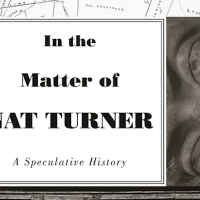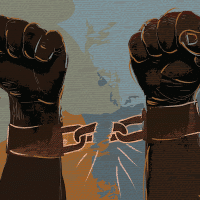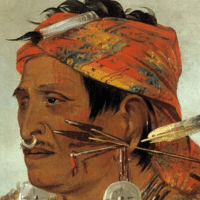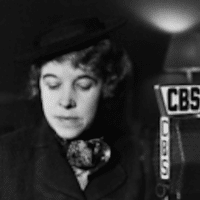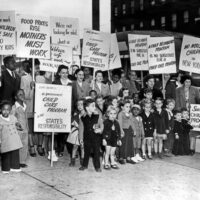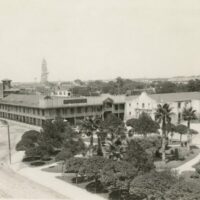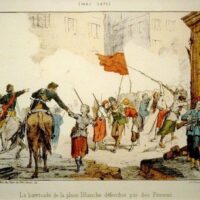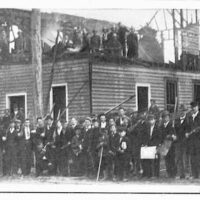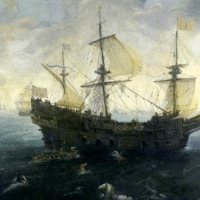-
Digital Money Beyond Blockchain with Rohan Grey
In this episode, we’re joined by Rohan Grey (@rohangrey), President of the Modern Money Network, Director of the National Jobs for All Coalition, Research Fellow at the Global Institute for Sustainable Prosperity, and JSD student at Cornell Law school. Our conversation is dedicated to Rohan’s current work on the political, economic, and cultural implications of money’s digital future.
-
Nat Turner and Expanding Historical Memory — Aziz Rana
The last year has witnessed an extensive public conversation, from the 1619 Project in the New York Times to protests in the streets, about American historical memory.
-
Don’t allow another U.S.-NATO Libya in the Horn of Africa
Paternalistic U.S. government political posturing toward Africa has a history of turning into fatal consequences for the masses of African peoples.
-
Juneteenth: A Marxist perspective
This year’s commemoration of Juneteenth–the day the last of the enslaved Black people in the United States were formally emancipated–is also a reminder that the job of ending all forms of slavery is not yet finished. As Karl Marx wrote, we have nothing to lose but our chains and a world to win!
-
Peru at the brink of civil war? The uprising of the dispossessed
This is the moment for the vast majority of Peruvians that they have been waiting for; those Peruvians that have always been considered as “non-people” by the oligarchy.
-
Small State but big questions
A week ago Saxony-Anhalt voted! The media prediction – a neck-and-neck race – was cock-eyed! But outside Sachsen-Anhalt (in German), did anyone really give a damn? Yes, some did!
-
The Modern Tecumseh and the Future of the U.S. Left
Tecumseh was killed at the Battle of the Thames in 1813. His dream of an Indigenous confederacy largely died with him. Yet his appreciation of the moment and the possibilities for transformation lived on and should give us all pause.
-
The WPA’s Federal Theatre: Creating jobs and creative achievement
A brief but spectacular achievement, the New Deal’s Federal Theatre Project (FTP) (1936-1939) provided jobs for some 13,000 destitute people at its height and created and produced 63,600 performances of 1,200 major theatrical works.
-
Learning from history: community-run child-care centers during World War II
We face many big challenges. And we will need strong, bold policies to meaningfully address them. Solving our child-care crisis is one of those challenges, and a study of World War II government efforts to ensure accessible and affordable high-quality child care points the way to the kind of bold action we need.
-
‘Forget the Alamo’ unravels a Texas history made of myths, or rather, lies
Three Texan authors build on a long tradition of dissent from patriotic accounts of Texas history in a new book on the racism baked into our story of the Alamo.
-
Tulsa: ‘A cover-up happens because the powers that be are implicated’
CounterSpin interview with Joseph Torres on media and the Tulsa massacre.
-
Book Review: ‘Black Spartacus: The Epic Life of Toussaint Louverture’
Surrounded by assasination plots and having been deceived from all sides, Louverture “was extremely reluctant to communicate his intentions even to his leading military officers, or to share power with them in any meaningful way.”
-
U.S. imperialists deprive Cuba of syringes that are needed now
Cuba, the first Latin America country to develop its own COVID-19 vaccines, presently is short of syringes for immunizing its population against the virus. It’s not feasible for Cuba to make its own syringes. The U.S. blockade prevents Cuba from importing them from abroad.
-
Genocide In Canada: mass grave of Indian children found
A Catholic Church-run residential school for indigenous children was an extermination camp. It operated until 1978.
-
The rise and fall of the Paris Commune
In celebration of the 150th anniversary of the Paris Commune.
-
How the modern NRA was born at the border
Watch our release of documentary short The Rifleman, which examines how NRA head Harlon Carter fused gun rights, immigration enforcement, and white supremacy. Then read an interview with filmmaker Sierra Pettengill and historian Roxanne Dunbar-Ortiz.
-
America hasn’t reckoned with the coup that blasted the Black middle class
In 1898, upwardly mobile Blacks in Wilmington, NC were terrorized and slaughtered in a violent insurrection that set the stage for Jim Crow–and the next 123 years. Hardly anyone really knows about it.
-
Eric Hobsbawm: The Consolations of History
In this feature-length documentary, Anthony Wilks traces the connections between the events of Hobsbawm’s life and the history he told.
-
The first cod war
How England’s government-licensed pirates stole the Newfoundland fishery from Europe’s largest feudal empire.
-
Celebrating the Paris Commune of 1871
It all began as the sun rose over the districts of Montmartre and Belleville on 18 March 1871. Army soldiers began seizing nearly 250 cannon that had been placed in these radical, working-class areas by the National Guard, a popular Parisian militia. The soldiers had been sent by the head of the new republican government, Adolphe Thiers.


